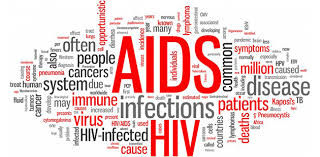PSGDN calls on Pacific states to honour the human rights of LGBTQI people
- webmaster13878
- Feb 15, 2022
- 3 min read

The Pacific Sexual and Gender Diversity Network (PSGDN) has called on governments in Fiji and the Pacific to honor the human rights of lesbian, gay, bisexual, transgender, queer, and intersex (LGBTQI) people by ending all forms of violence, hate and discrimination against them.
Chief Executive Officer, Isikeli Vulavou says LGBTQI people around the region continue to face widespread human rights violations, including violence, hate crime, cyberbully
ing and discrimination, and it is imperative for States to act urgently to protect the human rights and dignity of the most vulnerable in our communities.
PSGDN works with members and affiliates through the support of the Governments of New Zealand and the Kingdom of Netherlands to champion equality and promote equal rights for persons of diverse sexual orientation, gender identity and expression, and sex characteristics (SOGIESC).
Vulavou says the proliferation of anti-LGBTQI violence in Fiji and the Pacific over the past 10 years – aided and abetted by the advancements in digital spaces and lack of robust state-enforced laws and policies to protect the rights of people online is cause for alarm – and action.
The CEO said states should protect LGBTQI persons from violence, torture and ill-treatment, by investigating, prosecuting and providing remedy for acts of violence, torture and ill-treatment.
“Our governments need to strengthen efforts to prevent, monitor and report such violence, hate crimes and discrimination and incorporate homophobia and transphobia as aggravating factors in laws against hate crime and hate speech.”
Vulavou said states should respect international human rights standards and implement recommended actions that they supported from the Universal Periodic Review, which includes review and repealing of legislations that criminalize same-sex conduct between consenting adults, legislations that criminalize transgender people based on their gender expression and other laws used to arrest, punish or discriminate against people based on their sexual orientation, gender identity or expression.
The CEO said the impact of the COVID-19 pandemic has also made matters worse for the LGBTQI people.
“The pandemic has generated complex challenges and risks, and while the virus does not discriminate, it is very clear that it hits marginalized communities in our societies disproportionally hard.
“Many LGBTQI people in Fiji and the region work in the tourism sector. As a result of the closure of borders and decline in visitor arrivals, many hotels and resorts had closed, leaving many unemployed or sent home without pay.
“With a high rate of LGBTQI people in precarious jobs, and living on very limited and unstable financial resources, findings and feedback from our network members indicate many LGBTQI people had difficulties finding a decent place to live safely.
“Many LGBTQI people stay in rented homes or flats.
"When they lost their jobs, they could not afford rent, and were forced to go back to homes they had gladly left because of the mistreatment, discrimination and violence - and live dependently again.
“These challenges are causing anxiety, and forcing LGBTQI people into psychological challenges, and many becoming suicidal.”
The CEO said all people have an equal right to live free from violence, persecution, discrimination and stigma.
“International human rights law establishes legal obligations on States to ensure that every person, without distinction, can enjoy these rights.
“Failure to uphold the human rights of LGBTQI people against abuses such as violence and discriminatory laws and practices constitute serious violations of international human rights law and have a far-reaching impact on society – contributing to increased vulnerability to ill health, economic exclusion, poverty, strain families and communities, and social ills.”




Comments